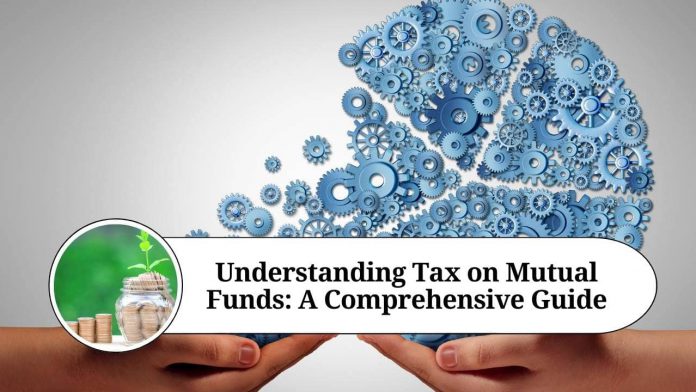Introduction:
Investing in mutual funds is a popular choice for many individuals looking to grow their wealth. However, when it comes to taxation, mutual funds can be a bit tricky to understand. In this blog post, we will cover the basics of tax on mutual funds to help you make informed investment decisions.
- Capital Gains Tax: When you sell your mutual fund units, you may incur a capital gain or loss, which is taxable. The tax on capital gains from mutual funds is calculated based on the holding period and the type of fund.
- Short-term Capital Gains Tax: If you hold your mutual fund units for less than 12 months, any gains will be considered short-term capital gains and will be taxed as per your income tax slab rate. Short-term capital gains tax rates can range from 5% to 30%.
- Long-term Capital Gains Tax: If you hold your mutual fund units for more than 12 months, any gains will be considered long-term capital gains. Long-term capital gains tax rates depend on the type of mutual fund and the amount of the gain. For equity funds, the long-term capital gains tax is 10% on gains over Rs. 1 lakh. For debt funds, the tax rate is 20% with indexation benefits.
- Dividend Distribution Tax: If you receive dividends from your mutual fund investments, they will be subject to dividend distribution tax (DDT). The DDT rate for equity mutual funds is 10% plus a surcharge and cess, while for debt mutual funds, the rate is 25% plus surcharge and cess.
- Tax-Saving Mutual Funds: Investing in tax-saving mutual funds, such as ELSS, can help you save on taxes. ELSS funds offer tax benefits under Section 80C of the Income Tax Act, allowing you to claim a deduction of up to Rs. 1.5 lakhs from your taxable income.
- Taxation on Systematic Withdrawal Plans: If you opt for a systematic withdrawal plan (SWP) from your mutual funds, the gains will be taxed as per the capital gains tax rates mentioned above. However, the tax liability can be reduced by choosing the right withdrawal strategy.
Conclusion:
Understanding the tax implications of mutual funds is crucial for making informed investment decisions. By considering the holding period, type of mutual fund, and other tax-saving options, you can minimize your tax liability and maximize your returns. Be sure to consult with a financial advisor or tax expert to determine the best strategy for your investment goals.
Read Other Useful Blogs:
Frequently Asked Questions (FAQs)
Q:1 What is the capital gains tax on mutual funds?
A: When you sell your mutual fund units, any profit or gain that you make is called capital gains. This gain is taxable, and the tax rate depends on the holding period and the type of fund.
Q:2 What is short-term capital gains tax on mutual funds?
A: If you hold your mutual fund units for less than 12 months, any gains will be considered short-term capital gains and will be taxed as per your income tax slab rate. The tax rate for short-term capital gains on mutual funds can range from 5% to 30%.
Q:3 What is long-term capital gains tax on mutual funds?
A: If you hold your mutual fund units for more than 12 months, any gains will be considered long-term capital gains. Long-term capital gains tax rates depend on the type of mutual fund and the amount of the gain. For equity funds, the long-term capital gains tax is 10% on gains over Rs. 1 lakh. For debt funds, the tax rate is 20% with indexation benefits.
Q:4 What is dividend distribution tax on mutual funds?
A: If you receive dividends from your mutual fund investments, they will be subject to dividend distribution tax (DDT). The DDT rate for equity mutual funds is 10% plus a surcharge and cess, while for debt mutual funds, the rate is 25% plus surcharge and cess.
Q:5 How can I save on taxes with mutual funds?
A: Investing in tax-saving mutual funds, such as Equity Linked Saving Schemes (ELSS), can help you save on taxes. ELSS funds offer tax benefits under Section 80C of the Income Tax Act, allowing you to claim a deduction of up to Rs. 1.5 lakhs from your taxable income.
Q:6 How are systematic withdrawal plans (SWP) taxed in mutual funds?
A: If you opt for a systematic withdrawal plan (SWP) from your mutual funds, the gains will be taxed as per the capital gains tax rates mentioned above. However, the tax liability can be reduced by choosing the right withdrawal strategy.
Q:7 Do I need to pay taxes on mutual funds even if I don’t sell them?
A: Yes, you need to pay taxes on mutual funds even if you don’t sell them. Mutual funds generate income in the form of dividends and capital gains, both of which are taxable.




















